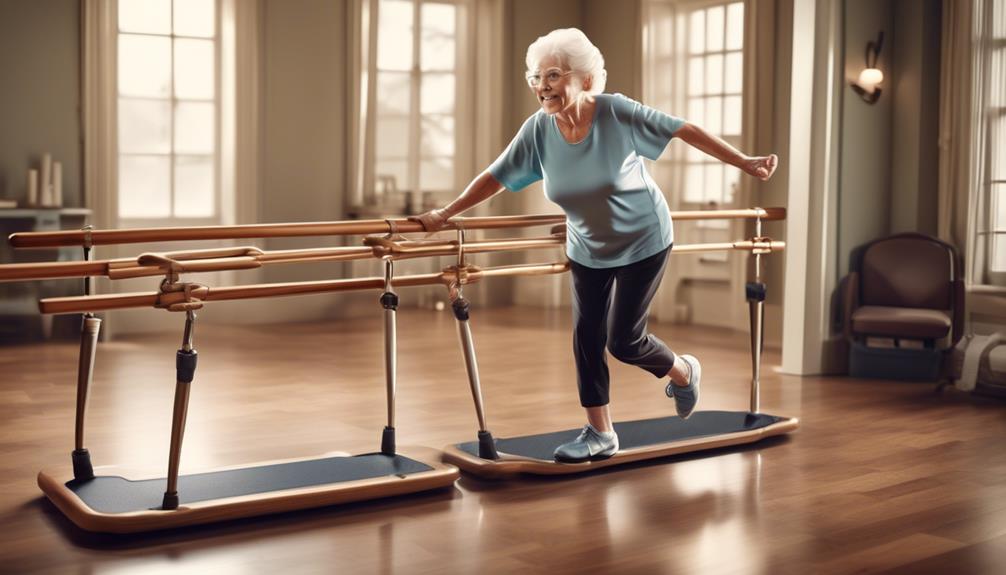Are you aware that the distinct qualities of professional caregivers are essential in providing exceptional care and support? It’s not only their professional expertise that contributes to their success in their roles; their personal attributes and qualities also have a significant impact on the lives of those they assist.
In this article, we will explore the essential personality traits that set professional caregivers apart. From patience to compassion, dependability to professionalism, we will uncover the key qualities that enable caregivers to provide the best possible care to those in need.
The Importance of Patience in Caregiving
Patience is an essential quality for caregivers to possess. As professional caregivers, we understand that seniors may require additional time to complete their daily tasks and might ask repetitive questions. It is our responsibility to approach these situations with patience and understanding, enhancing the quality of care we provide. By patiently waiting, answering the same questions, and repeating ourselves as needed, we create a calm and supportive environment for seniors, fostering their sense of independence and well-being.
“Patience is not simply the ability to wait – it’s how we behave while we’re waiting.” – Joyce Meyer
Caring for seniors requires acknowledging the unique challenges they may face, such as diminished mobility and cognitive decline. By embodying patience, we allow seniors to move at their own pace, respecting their individual needs and capabilities. This approach not only strengthens the caregiver-patient relationship but also promotes a sense of dignity and autonomy for our elderly clients.
The Positive Effects of Patience
When caregivers exhibit patience, it not only benefits seniors but also enhances our own well-being. Patience allows us to remain composed, reducing stress and frustration in challenging situations. By responding with patience, we create an environment conducive to open communication and understanding, promoting a more harmonious caregiving experience.
Patience also enables us to observe and understand our patients better, recognizing their unique preferences, limitations, and strengths. This in-depth knowledge allows us to tailor our care approach, ensuring that we meet their specific needs effectively.
Moreover, patience fosters a positive atmosphere where seniors feel comfortable expressing their concerns and emotions. By patiently listening and providing reassurance, we instill a sense of trust and security, empowering seniors to share their thoughts openly, leading to improved emotional well-being.
The Caregiver’s Role in Cultivating Patience
Developing patience as a caregiver is a continual process that requires empathy, self-awareness, and self-reflection. Recognizing and managing our own emotions and frustrations is essential in maintaining a patient and calm demeanor while caring for seniors.
To cultivate patience, we can practice mindfulness techniques, such as deep breathing and positive affirmations, which help us stay present and focused during challenging moments. Seeking support from fellow caregivers or participating in support groups can also provide valuable insights and coping strategies, reminding us that we are not alone in facing these challenges.
It is important to remember that in moments of impatience, we should never compromise the quality of care we provide. By continuously honing our patience and compassionate qualities, we sustain our commitment to delivering exceptional care to seniors.
| Benefits of Patience in Caregiving | Effects |
|---|---|
| Enhanced caregiver-patient relationship | Improved trust and communication |
| Reduced stress and frustration | Promotion of a calm and harmonious environment |
| Improved emotional well-being for seniors | Increase in self-expression and sharing of concerns |
| Enhanced caregiver self-awareness | Better understanding of individual patient needs |
In summary, patience is a vital quality for caregivers, contributing to the overall well-being of both the caregiver and the seniors we support. By exercising patience, we create a nurturing and supportive environment, enabling seniors to maintain their independence while receiving exceptional care.
The Role of Compassion in Caregiving
Compassion is a vital quality that sets exceptional caregivers apart. As caregivers, we understand the profound impact of compassion on the well-being of seniors. It goes beyond providing physical care; compassion enables us to connect with our patients on a deeper level, offering them emotional support and comfort.
When seniors are going through difficult experiences, such as dealing with chronic illness, adjusting to new living arrangements, or coping with the loss of a loved one, our compassionate presence can make a world of difference. By being empathetic and understanding towards their unique needs and emotions, we create a caring and nurturing environment that aids their overall healing and wellness.
“Compassion is not just a feeling, it is an action.”
The compassionate caregivers understand that their role extends beyond the realm of physical caretaking. They recognize that simply being present and offering a listening ear can provide immense comfort to seniors who may feel isolated or lonely. By demonstrating compassion in our daily interactions, we convey a sense of genuine care and concern, establishing a strong bond of trust and security with our patients.
Through compassion, caregivers can uplift spirits, promote a positive outlook, and improve the quality of life for seniors. It is an indispensable characteristic that embodies the essence of caregiving.

| Key Points | Benefits of Compassion in Caregiving |
|---|---|
| Connects with patients on a deeper level | Builds trust and fosters a sense of security |
| Provides emotional support and comfort | Enhances overall well-being and healing |
| Improves quality of life for seniors | Promotes a positive outlook and uplifts spirits |
| Reduces feelings of loneliness and isolation | Creates a caring and nurturing environment |
The Significance of Dependability in Caregiving
Dependability is a crucial quality that caregivers must possess because older adults heavily rely on them for assistance with daily activities. Canceling on them is simply not an option. At our professional home care agency, we understand the importance of dependability in providing uninterrupted care to seniors.
When seniors require assistance with tasks such as bathing, dressing, meal preparation, or medication management, they need to feel confident that their caregiver will be there for them consistently. The dependability of our caregivers ensures that seniors receive the care they need, when they need it.
The Role of Professional Home Care Agencies

At our home care agency, dependability is a core value that we prioritize. We understand the concerns of families who entrust the care of their loved ones to us, and we take that responsibility seriously. It is our commitment to provide dependable caregivers who show up on time, ready to provide compassionate and personalized care.
By partnering with a professional home care agency, families can have peace of mind knowing that there will always be a caregiver available to cover absences. This means that even if a regular caregiver is unable to attend a shift due to illness or personal matters, seniors will still receive the care they depend on.
Dependability not only ensures the physical well-being of seniors but also plays a significant role in their emotional and mental well-being. Consistent and reliable care builds trust between caregivers and seniors, allowing for a more meaningful and fulfilling relationship to develop over time.
Our caregivers understand the trust that is placed in them, and they strive to exceed expectations with their dependable and unwavering commitment to providing exceptional care. They are trained to go above and beyond, ensuring that seniors feel safe, comfortable, and supported in their daily lives.
Dependability is an integral part of the caregiver qualities that we prioritize at our home care agency. We believe in the power of dependable caregiving in enhancing the quality of life for seniors and providing peace of mind for their families.
The Confidence Factor in Caregiving
Caregivers play a vital role in providing quality care and support to older adults. One of the key qualities that sets exceptional caregivers apart is their confidence. When caregivers are confident in their abilities, it reassures older adults that they are in good hands.
Confidence enables caregivers to navigate any challenges that may arise during their work. Whether it’s addressing a sudden change in a senior’s health condition or handling an unexpected situation, confident caregivers are better equipped to handle these circumstances with poise and professionalism.
Research has shown that confidence is closely linked to caregiver preparedness. Caregivers who score higher in caregiver preparedness also have higher scores in caregiver confidence. This highlights the importance of comprehensive training and ongoing education for caregivers to build their knowledge and skills, ultimately boosting their confidence levels.
“Confidence comes from knowing you are prepared and equipped to handle any situation that comes your way.”
The Benefits of Caregiver Confidence:
- Establishes trust and builds strong relationships with older adults
- Promotes a positive and reassuring caregiving environment
- Enhances problem-solving skills
- Reduces stress and anxiety for both caregivers and seniors
- Improves overall job satisfaction
Confidence is contagious. When caregivers exude confidence, it not only instills a sense of security in older adults but also inspires trust and reassurance among their families. It creates a positive and nurturing atmosphere where seniors feel comfortable and well-cared for.

| Confidence Factors | Impact on Caregiving |
|---|---|
| Self-assured demeanor | Creates a calm and comforting environment |
| Adaptability and quick thinking | Enables caregivers to handle unexpected situations effectively |
| Effective communication | Facilitates clear and empathetic interaction with seniors |
| Confidence in skills and knowledge | Boosts overall caregiver performance and job satisfaction |
The Importance of Trustworthiness in Caregivers
In the realm of caregiving, trustworthiness is a quality that both families and their beloved older adults highly value. Caregivers play a crucial role in providing assistance and support to seniors, often having access to their homes and personal belongings. Therefore, families want to ensure that their loved ones are in the hands of trustworthy individuals who will protect their interests and well-being.
When a caregiver is deemed trustworthy, families can feel confident that their loved ones are not being taken advantage of. Trust is built on the foundation of reliability, honesty, and ethical conduct. A trustworthy caregiver will consistently act in the best interests of the seniors they care for, maintaining a high standard of ethical behavior and respecting their privacy and dignity.
Working with a professional home care agency adds another layer of trust and security. Such agencies employ caregivers who undergo rigorous background checks, training, and vetting processes to ensure their qualifications and trustworthiness. Families can have peace of mind knowing that the caregivers provided by the agency have been carefully selected and are accountable for their actions.
“Trust is built on the foundation of reliability, honesty, and ethical conduct.”
By prioritizing trustworthiness, caregivers create an environment of safety and security for older adults. Trust enables seniors to feel comfortable and confident in sharing their needs, concerns, and vulnerabilities. When the relationship between caregiver and senior is built on trust, it fosters open communication, allowing caregivers to better understand and cater to the unique needs of each individual.
Ultimately, trustworthiness is a fundamental aspect of caregiver qualities that contributes to the overall well-being of seniors. It ensures that caregivers fulfill their responsibilities with integrity, empathy, and professionalism, promoting positive caregiving experiences and enhancing the quality of life for older adults.

Comparing Caregiver Qualities
| Qualities | Importance |
|---|---|
| Patience | Creates a calm and supportive environment for seniors |
| Compassion | Provides emotional support and comfort to seniors |
| Dependability | Ensures uninterrupted care for seniors |
| Confidence | Reassures seniors that they are in good hands |
| Trustworthiness | Provides security and peace of mind for families |
| Professionalism | Promotes a serious and dedicated approach to caregiving |
| Friendliness | Builds positive and comfortable caregiver-patient relationships |
The Professionalism of Caregivers
Caregivers play a vital role in the lives of senior citizens, providing essential care and support. To ensure the highest level of care, professionalism is of utmost importance. Caregivers approach their responsibilities with a professional mindset, demonstrating dedication and competence in their role.
Professionalism in caregiving involves maintaining a high standard of conduct and adhering to ethical principles. It encompasses various aspects of caregiving, including punctuality, accountability, and respect for privacy and confidentiality. Caregivers exhibit professionalism by demonstrating the following caregiver qualities:
- Reliability: Professional caregivers prioritize their responsibilities and consistently deliver quality care. They understand the importance of being dependable and strive to provide a consistent level of support to their clients.
- Communication: Effective communication is crucial for building trust and understanding between caregivers and seniors. Professional caregivers possess excellent communication skills, actively listening to the needs and preferences of their clients, while also conveying information clearly and compassionately.
- Organization: Caregivers with strong organizational skills can efficiently manage their time and tasks, ensuring that each client’s needs are met effectively. They maintain accurate records, manage medications, and coordinate appointments, maintaining a structured and well-organized caregiving environment.
- Empathy: While maintaining professionalism, caregivers also exhibit empathy and compassion towards their clients. They understand the emotional challenges that seniors may face and provide support while respecting their individuality and dignity.
By embodying these caregiver qualities, professional caregivers establish a secure and trustworthy relationship with their clients. They create a safe and nurturing environment that promotes the well-being and independence of seniors.
The Role of Professional Training
Professionalism in caregiving is not solely dependent on innate qualities; it is also enhanced through proper training and education. Professional caregivers undergo rigorous training programs that equip them with the necessary skills and knowledge to fulfill their roles effectively. These programs cover a wide range of topics, including medical care, communication techniques, and ethical standards, ensuring that caregivers are well-prepared to meet the diverse needs of their clients.
Through continuous learning and professional development, caregivers stay updated on the latest caregiving techniques, innovations, and best practices. This commitment to ongoing education further enhances their professionalism and allows them to adapt to evolving healthcare requirements.
The Friendly Nature of Caregivers
In addition to professionalism, caregivers should strive to be friendly and personable. Building a positive and comfortable relationship with the seniors they care for is important. Great caregivers take the time to get to know their patients and treat them with kindness while maintaining a professional demeanor.
Caregivers understand the value of creating a warm and inviting environment for seniors. By establishing friendly and genuine connections, caregivers can make their patients feel comfortable, safe, and cared for. This friendly nature helps foster trust and promotes open communication between caregivers and seniors, enabling a more fulfilling caregiving experience.
Friendliness goes beyond mere politeness. Caregivers with a friendly nature actively engage with their patients, acknowledging their preferences, interests, and unique needs. They offer a listening ear and provide emotional support, making seniors feel valued and understood.
A friendly caregiver can brighten a senior’s day and bring a sense of companionship. It makes a significant difference in the overall well-being and happiness of our patients.”
Caregivers who cultivate a friendly nature not only enhance the quality of care provided but also contribute to the overall positive experience for seniors and their families. Creating an atmosphere of warmth, empathy, and genuine concern can significantly improve seniors’ emotional well-being and overall satisfaction with their care.
By embracing their friendly nature, caregivers help alleviate seniors’ feelings of loneliness and isolation, making a significant impact on their mental and emotional health. The compassionate companionship and support they provide allow seniors to maintain a sense of independence and dignity, enhancing their overall quality of life.
Ultimately, caregivers who embody a friendly nature contribute to a harmonious and trusting caregiver-patient relationship, promoting a more fulfilling caregiving journey for both parties involved.
| Benefits of a Friendly Nature in Caregivers | Impact on Seniors |
|---|---|
| 1. Creates a warm and inviting environment | 1. Seniors feel comfortable, safe, and cared for |
| 2. Fosters trust and promotes open communication | 2. Enhances emotional well-being and overall satisfaction |
| 3. Acknowledges seniors’ preferences and interests | 3. Reduces feelings of loneliness and isolation |
| 4. Provides emotional support and companionship | 4. Improves mental and emotional health |
| 5. Contributes to a harmonious caregiver-patient relationship | 5. Enhances overall quality of life |
Conclusion
Professional caregivers possess important personality traits and qualities that are essential for providing exceptional care and support to those in need. These caregivers demonstrate patience, compassion, dependability, confidence, trustworthiness, professionalism, and friendliness, contributing to a nurturing and supportive environment for seniors.
By embodying patience, caregivers understand the unique needs of senior individuals, allowing them to provide attentive and unhurried care. Showing compassion, caregivers connect with their patients on a deeper level, providing emotional support and comfort during challenging times.
Dependability is crucial for caregivers as they play a significant role in assisting with daily activities. Families rely on these caregivers to be present and dedicated, ensuring uninterrupted care for their loved ones. Additionally, caregivers’ confidence empowers them to tackle any challenges that may arise, reassuring seniors that they are in capable hands.
Furthermore, trustworthiness is highly valued in caregivers, as they are entrusted with access to seniors’ homes and personal belongings. By working with professional home care agencies, families can have peace of mind, knowing that their loved ones are being cared for by trustworthy individuals.
Moreover, caregivers prioritize professionalism while also fostering friendly relationships with seniors. Striking a balance between these two aspects allows caregivers to provide high-quality care while building positive and comfortable connections with their patients.
To sum up, the important qualities and traits displayed by professional caregivers play a vital role in enhancing the lives of seniors. With their patience, compassion, dependability, confidence, trustworthiness, professionalism, and friendliness, caregivers create a safe and supportive environment that promotes the well-being and happiness of those they care for.
FAQ
What are some important personality traits of professional caregivers?
Important personality traits of professional caregivers include patience, compassion, dependability, confidence, trustworthiness, professionalism, and friendliness.
Why is patience important in caregving?
Patience is important in caregiving because older adults may take longer to complete tasks and may ask repetitive questions. Caregivers who are patient can create a calm and supportive environment for seniors.
How does compassion play a role in caregiving?
Compassion allows caregivers to understand and empathize with seniors, providing them with emotional support and comfort during difficult experiences. It helps caregivers connect with their patients on a deeper level.
Why is dependability significant in caregiving?
Dependability is crucial in caregiving because older adults rely on caregivers to assist with their daily activities. Professional home care agencies ensure there is always a caregiver available to provide uninterrupted care.
What is the significance of confidence in caregiving?
Confidence reassures older adults that they are in good hands. Caregivers who are confident in their skills and services can handle challenges that may arise during their work.
Why is trustworthiness important for caregivers?
Families of older adults value trustworthiness in caregivers as they have access to seniors’ homes and personal belongings. Working with a professional home care agency adds an extra layer of trust and security.
How can caregivers balance professionalism and friendliness?
Caregivers can maintain professionalism while building friendly relationships with seniors by taking the time to get to know them, treating them with kindness, and creating a positive and comfortable environment.
What are some key qualities of professional caregivers?
Some key qualities of professional caregivers include patience, compassion, dependability, confidence, trustworthiness, professionalism, and friendliness. These qualities enable caregivers to provide exceptional care and support.









